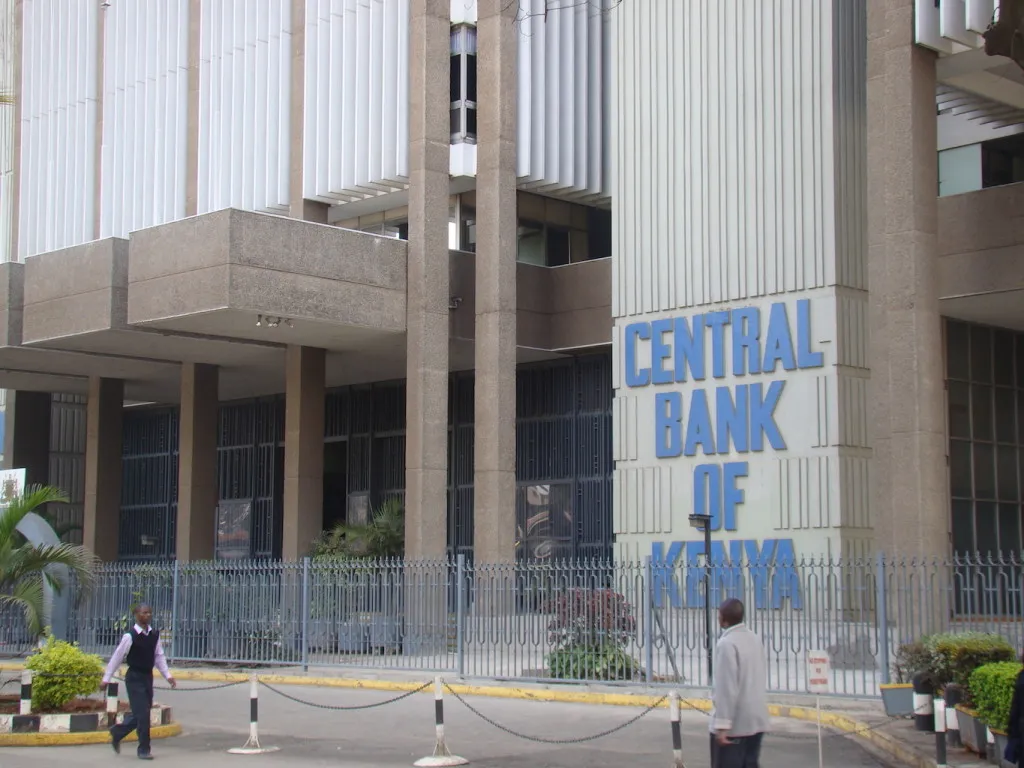Understanding how to manage your cash in bank accounts is fundamental to personal finance. This guide provides essential insights into regular bank accounts in Kenya, helping you make informed decisions about your money. For more in-depth financial strategies visit serrarigroup.com.
1. How much interest do regular savings accounts earn in Kenyan banks?
Answer:
Interest rates on regular savings accounts in Kenya are generally low, typically ranging between 2% and 7% per annum, depending on the bank and account type. These rates are set by individual banks and often vary based on:
- Minimum balance requirements
- Account tier (premium vs. basic)
- Whether the interest is compounded monthly, quarterly, or annually
Sample Interest Rates (as of 2025):
- KCB Simba Savings Account: ~3–5% per annum
- Co-op Bank Hekima Savings Account: ~4% per annum
- Equity Bank Ordinary Savings: ~2.5–3% per annum
- NCBA Goal Savings: ~6–7% per annum (goal-based, not standard)
Formula to calculate interest (simple annual interest):
Interest = Principal × Rate × Time
Where:
Principal is your deposit
Rate is the annual interest rate (as a decimal)
Time is in years
Example:
If you deposit KES 100,000 at 5% for 1 year:
Interest = 100,000 × 0.05 × 1 = KES 5,000
Note: Many banks deduct taxes and monthly fees, which may lower your net returns on your cash in bank accounts.
One decision can change your entire career. Take that step with courses in ACCA, HESI A2, ATI TEAS 7, HESI EXIT, NCLEX-RN, NCLEX-PN, and Financial Literacy. Join Serrari Ed and start building your brighter future today.
2. Is it safe to keep large amounts of money in a Kenyan bank account?
Answer:
Yes, Kenyan banks are generally safe for storing large amounts of cash, especially if the bank is licensed and regulated by the Central Bank of Kenya (CBK). However, there are key safety considerations for your bank account:
Safety Features:
- Deposit Protection Fund (DPF): Your deposits are insured up to KES 500,000 per depositor per bank under the Kenya Deposit Insurance Corporation (KDIC) in case a bank collapses.
- CBK Regulation: All commercial banks are required to adhere to strict liquidity, capital adequacy, and reporting standards set by the Central Bank of Kenya.
- Digital Security: Banks now use multi-factor authentication, biometric verification, and encryption to protect online and mobile transactions.
Cautions:
- Exceeding the DPF limit: If you hold over KES 500,000, only the insured portion is protected if the bank fails.
- Cybersecurity risks: Avoid using public Wi-Fi for online banking. Set strong passwords and activate SMS/email alerts.
Tip: Spread large deposits across multiple reputable banks to stay within DPF insurance limits and diversify risk.
3. What are the best banks in Kenya for regular savings accounts?

Answer:
The best banks in Kenya for regular savings accounts depend on interest rates, fees, digital convenience, and customer service. Below are some banks that consistently rank high for cash savings features:
Top Banks for Regular Savings (2025):
- NCBA Bank – GoalSave Account
- Interest up to 7% per annum
- Flexible deposits
- No monthly charges
- Equity Bank – Ordinary Savings Account
- Interest around 2.5–3%
- Widespread accessibility
- Mobile integration with Eazzy Banking
- KCB Bank – Simba Savings
- Interest ~3–5%
- Good for long-term savings
- Supports standing orders
- Co-operative Bank – Hekima Savings
- Offers 4% per annum
- Encourages disciplined saving
- Linked to mobile banking
- Family Bank – Jijenge Account
- Goal-based account
- Interest around 5–6%, depending on tenure
- Encourages savings for future plans
What to Look For:
- No or low ledger and maintenance fees
- Competitive interest rates
- Easy mobile access
- Quick liquidity (ability to withdraw without penalties)
For a comprehensive comparison and personalized advice on finding the best high yield savings account or a suitable regular savings account for your needs, consider key learning material at serrarigroup.com.
4. Do Kenyan banks charge fees for maintaining regular accounts?
Answer:
Yes, most Kenyan banks charge various fees on regular bank accounts, though the amount and frequency vary. These fees can reduce your net interest earnings and should be carefully evaluated before choosing an account to manage your cash.
Common Bank Fees in Kenya:
| Fee Type | Typical Range (KES) |
| Monthly maintenance fee | 50 – 300 |
| Withdrawal/ATM charges | 30 – 100 per transaction |
| Ledger fees (per entry) | 10 – 50 |
| SMS alert fees | 1 – 5 per alert |
| Dormancy fees (after 6–12 months inactivity) | 100 – 500 |
Tips to Minimize Fees:
- Choose fee-free or low-fee savings accounts.
- Use mobile or internet banking for transactions.
- Maintain the minimum balance to avoid penalty charges.
- Consolidate your banking to avoid multiple account fees.
Example:
If your account earns KES 4,000 interest annually but you pay KES 100/month in fees (KES 1,200 annually), your net gain is only KES 2,800.
5. How does inflation affect money kept in a bank savings account?

Answer:
Inflation erodes the real value of cash held in a savings account over time. Even if you’re earning interest, if the inflation rate is higher than your interest rate, your money is losing purchasing power.
Kenyan Context Example:
Savings Account Interest: 4%
Inflation Rate (2025 est.): 6.5%
Real Return = 4% – 6.5% = –2.5%
This means while your bank account balance grows, what that money can buy is actually reducing.
Formula for Real Return (Adjusted for Inflation):
Real Interest Rate ≈ Nominal Rate – Inflation Rate
Example:
KES 100,000 earning 4% interest = KES 104,000 after one year.
But if inflation is 6.5%, the purchasing power is equivalent to only ~KES 97,500.
How to Counter Inflation:
- Use savings accounts only for short-term needs or emergency funds.
- For long-term growth, consider higher-yield options like money market funds, bonds, or real estate.
Push boundaries, reach goals, achieve more. Whether it’s ACCA, HESI A2, ATI TEAS 7, HESI EXIT, NCLEX-RN, NCLEX-PN, or Financial Literacy, we’ve got the course to match your ambition. Start with Serrari Ed now.
6. Can I grow my money just by saving in a regular bank account in Kenya?
Answer:
While you can grow your cash slightly by saving in a regular bank account, the growth is minimal, and it’s not an effective long-term strategy for wealth building—especially when interest rates are lower than inflation.
Why Growth is Limited:
- Regular savings accounts offer low interest rates (typically 2%–5%).
- Inflation in Kenya often ranges between 5% and 8%, which reduces real returns.
- Bank fees and taxes (15% withholding tax on interest earned) can erode earnings.
Better Use of Regular Accounts:
- Short-term emergency fund storage (3–6 months of expenses).
- Daily transaction use via linked mobile money or cards.
- Temporary parking of funds before investing in higher-yield products.
Example Calculation:
If you save KES 100,000 at 4% annual interest:
Interest = 100,000 × 0.04 = KES 4,000
After 15% withholding tax, net gain = KES 3,400
If inflation is at 6%, the real value of your savings actually decreases.
7. What’s the difference between a current account and a savings account in Kenya?
Answer:
A current account and a savings account serve different financial purposes for managing your cash. Here’s how they compare in Kenya:
| Feature | Current Account | Savings Account |
| Interest Paid | Typically none or very low | Pays modest interest (2%–5%) |
| Withdrawal Limits | Unlimited withdrawals | Limited withdrawals (to encourage saving) |
| Bank Charges | Higher (monthly fees, transaction charges) | Lower fees, especially in digital options |
| Ideal For | Daily transactions, salary processing | Setting aside money for short-term saving |
| Cheque Book | Available | Not available |
| Access to Overdraft | Usually allowed | Not allowed |
Which One Should You Use?
- Use a current account if you need to perform regular transactions like bill payments, cheque writing, and frequent withdrawals.
- Use a savings account to store cash securely and earn modest interest for short- to medium-term financial goals.
8. Are there bank accounts in Kenya with no monthly charges?
Answer:
Yes, several Kenyan banks offer zero-maintenance-fee bank accounts, particularly targeted at digital-savvy or low-income customers. These accounts are suitable for individuals looking to avoid deductions while managing basic cash transactions.
Examples of Zero-Charge or Low-Fee Accounts:
- KCB M-Benki Account (Note: KCB M-Benki is part of their mobile/online banking offerings, often with low/no fees for basic transactions)
- Openable via phone.
- No monthly fees.
- Linked to mobile banking.
- Equity Bank Eazzy Save Account
- No ledger fees or monthly maintenance.
- Encourages saving via mobile (EazzyApp or Equitel).
- ABSA Digital Savings Account
- No maintenance fees.
- Fully online with good mobile integration.
- Co-op Bank Hekima Account
- No monthly charges when minimum balance is maintained.
- Ideal for salaried and low-transaction customers.
- Family Bank PesaPap Digital Account
- App-based, with no maintenance fees.
Important Notes:
- While there are no monthly fees, some accounts still charge for ATM withdrawals, SMS alerts, or over-the-counter services.
- Read the terms and conditions carefully to understand hidden fees.
9. How can I avoid unnecessary deductions from my bank account in Kenya?
Answer:
Unnecessary deductions from Kenyan bank accounts typically come from monthly fees, transaction charges, SMS notifications, or dormant account penalties. Fortunately, you can minimize or completely avoid many of these charges when managing your cash.
Tips to Avoid Deductions:
- Choose a zero-maintenance account: Opt for mobile-first or digital-only accounts with no ledger or monthly charges.
- Limit over-the-counter services: Use mobile banking or ATMs for most transactions to avoid teller charges.
- Opt-out of SMS alerts (or use free app notifications): Some banks charge KES 1–5 per SMS; switch to in-app notifications where available.
- Avoid dormancy: Transact at least once every 6–12 months. Dormant accounts can be charged KES 100–500 or require reactivation.
- Maintain required minimum balance: Some accounts penalize holders who go below a set amount.
- Track deductions: Regularly check your mini-statements or mobile app to spot unfamiliar fees.
Example:
You could save over KES 2,000 annually just by switching from a traditional current account (with monthly KES 200 fees and KES 50 per withdrawal) to a digital account with no maintenance charges.
10. What alternatives are better than keeping money in a regular bank account in Kenya?
Answer:
If your goal is financial growth rather than just safekeeping, there are more rewarding alternatives than a regular savings account, especially when considering inflation-adjusted returns for your cash.
Top Alternatives to Consider:
- Money Market Funds (MMFs):
- Offer 8%–11% annual returns, compounded daily.
- High liquidity—withdraw within 2–3 days.
- Low entry point (KES 100–500).
- Regulated by the Capital Markets Authority (CMA).
- SACCO Savings & Shares:
- Dividends range between 8% and 15% annually.
- Also allows borrowing at low rates based on savings.
- Great for long-term saving and loan access.
- Treasury Bills and Bonds:
- Fixed Deposit Accounts (FDRs): These offer competitive certificate of deposit rates.
- Higher interest than savings (6%–10% per annum).
- Ideal for locking funds for a specific time frame.
- Example: Kingdom Bank Fixed Deposit Account
- Unit Trusts / Investment Funds:
- Pooled investments managed by experts.
- Moderate to high returns depending on fund type.
Quick Comparison:
| Option | Expected Return (p.a.) | Liquidity | Risk Level |
| Savings Account | 2%–5% | Very High | Very Low |
| MMF | 8%–11% | High (1–3 days) | Low |
| SACCO Shares | 10%–15% (dividends) | Medium | Low–Medium |
| Treasury Bonds | 10%–13% | Low (long-term) | Very Low |
| Fixed Deposit | 6%–10% | Low (locked in) | Low |
Final Note:
Use your bank account for daily transactions and emergency funds, but consider diversifying the rest of your cash into better-performing options that suit your financial goals and risk appetite. For tailored financial planning, explore the resources at serrarigroup.com
Ready to take your career to the next level? Join our dynamic courses: ACCA, HESI A2, ATI TEAS 7 , HESI EXIT , NCLEX – RN and NCLEX – PN, Financial Literacy!🌟 Dive into a world of opportunities and empower yourself for success. Explore more at Serrari Ed and start your exciting journey today! ✨
Article, Financial and News Disclaimer
The Value of a Financial Advisor
While this article offers valuable insights, it is essential to recognize that personal finance can be highly complex and unique to each individual. A financial advisor provides professional expertise and personalized guidance to help you make well-informed decisions tailored to your specific circumstances and goals.
Beyond offering knowledge, a financial advisor serves as a trusted partner to help you stay disciplined, avoid common pitfalls, and remain focused on your long-term objectives. Their perspective and experience can complement your own efforts, enhancing your financial well-being and ensuring a more confident approach to managing your finances.
Disclaimer: This article is for informational purposes only and does not constitute financial advice. Readers are encouraged to consult a licensed financial advisor to obtain guidance specific to their financial situation.
Article and News Disclaimer
The information provided on www.serrarigroup.com is for general informational purposes only. While we strive to keep the information up to date and accurate, we make no representations or warranties of any kind, express or implied, about the completeness, accuracy, reliability, suitability, or availability with respect to the website or the information, products, services, or related graphics contained on the website for any purpose. Any reliance you place on such information is therefore strictly at your own risk.
www.serrarigroup.com is not responsible for any errors or omissions, or for the results obtained from the use of this information. All information on the website is provided on an as-is basis, with no guarantee of completeness, accuracy, timeliness, or of the results obtained from the use of this information, and without warranty of any kind, express or implied, including but not limited to warranties of performance, merchantability, and fitness for a particular purpose.
In no event will www.serrarigroup.com be liable to you or anyone else for any decision made or action taken in reliance on the information provided on the website or for any consequential, special, or similar damages, even if advised of the possibility of such damages.
The articles, news, and information presented on www.serrarigroup.com reflect the opinions of the respective authors and contributors and do not necessarily represent the views of the website or its management. Any views or opinions expressed are solely those of the individual authors and do not represent the website's views or opinions as a whole.
The content on www.serrarigroup.com may include links to external websites, which are provided for convenience and informational purposes only. We have no control over the nature, content, and availability of those sites. The inclusion of any links does not necessarily imply a recommendation or endorsement of the views expressed within them.
Every effort is made to keep the website up and running smoothly. However, www.serrarigroup.com takes no responsibility for, and will not be liable for, the website being temporarily unavailable due to technical issues beyond our control.
Please note that laws, regulations, and information can change rapidly, and we advise you to conduct further research and seek professional advice when necessary.
By using www.serrarigroup.com, you agree to this disclaimer and its terms. If you do not agree with this disclaimer, please do not use the website.
www.serrarigroup.com, reserves the right to update, modify, or remove any part of this disclaimer without prior notice. It is your responsibility to review this disclaimer periodically for changes.
Serrari Group 2025
















